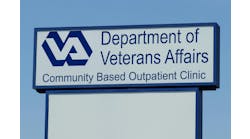Diagnostic and treatment play a vital role in the practice of medicine. Physician societies, government agencies, and others issue detailed recommendations for everything from who should receive cardiac stents to which antibiotics patients should get to avoid infections after knee surgery.
These documents are essential for the provision of evidence-based care, as opposed to seat-of-the-pants treatment that might be expedient or lucrative for doctors but less than ideal for patients.
Until now, the most rigorous of those guidelines have been available for doctors to peruse in a single location: the government’s Agency for Healthcare Research and Quality’s National Guidelines Clearinghouse (NGC). NGC also takes the time to summarize the more than 4,000 guidelines it maintains, an indispensible service for the physicians who come to the site seeking information.
It’s a niche site, but the NGC draws an average of 200,000 visitors per month, according to AHRQ.
After roughly a decade of budget cuts, however, AHRQ has defunded the repository, effective July 16. While the recommendations will still exist elsewhere after that date, anyone hoping to find out, say, how best to treat a teenager with asthma, or who should have a particular test, will have to work harder to locate the most current guidance. The NGC itself will disappear.
Similar repositories do exist, but the NGC’s criteria for inclusion were set by the National Academy of Medicine, which established a high bar for rigor that other clearinghouses might lack. In addition to physicians, other users of the NGC include state and local governments, medical schools, and other educational institutions, and healthcare organizations.
An AHRQ spokesperson acknowledged that “some clinicians and others may initially miss the NGC. But in today’s information-rich environment, they’ll have the ability to find guidelines in other places, such as with organizations that develop guidelines. Likewise, information about guidelines’ trustworthiness will be available from peer-reviewed publications and other sources.”
Others beg to differ. Dr. Roy Poses, a Brown University professor of medicine and president of the Foundation for Integrity and Responsibility in Medicine, said doctors “will be losing an important resource for research, education and evidence-based practice.” (It’s worth noting that some doctors are not fond of the proliferation of guidelines, which they blame for a culture of cookie-cutter care that’s bereft of art and flexibility—and that exposes them to liability if they happen to deviate from doctrine.)
As lamentable as the loss of the NGC would be for doctors and patients, it’s hardly surprising. Its parent agency has been suffering death by 1,000 cuts for years. Despite a modest bump in its 2018 funding, the AHRQ’s $334 million annual budget is $120 million below its 2010 level, adjusted for inflation.
The NGC—whose fiscal year 2017 budget was $1.2 million, down from $2.1 million the year before—didn’t survive the chopping block. “The decision to end support for the NGC was an Agency decision based on assessing how best to use our current resources, including both appropriated dollars and dollars from the Patient-Centered Outcomes Research Trust Fund,” the AHRQ spokesperson told STAT. The AHRQ budget for the 2019 fiscal year, as proposed by the Trump administration, “will re-focus support to only the highest priority research programs.” That doesn’t include the NGC—which is operated by ECRI, a health nonprofit—because it is considered a dissemination contract.
With the date of death for the NGG barely a month away, America’s doctors—and their patients—may, to paraphrase another clearinghouse, already be losers. Perhaps some physician group would like to ride in like a white knight and provide the funding to keep the NGC alive.
AHRQ “is receiving expressions of interest from stakeholders who may wish to carry on NGC’s work,” according to the AHRQ spokesperson. “If the work continues, we may be able to provide more information in the future, such as listing those potential stakeholders and opportunities for the public to comment.”
If that comes to pass, that funding, to borrow a phrase from politics, should be put in a lockbox.

